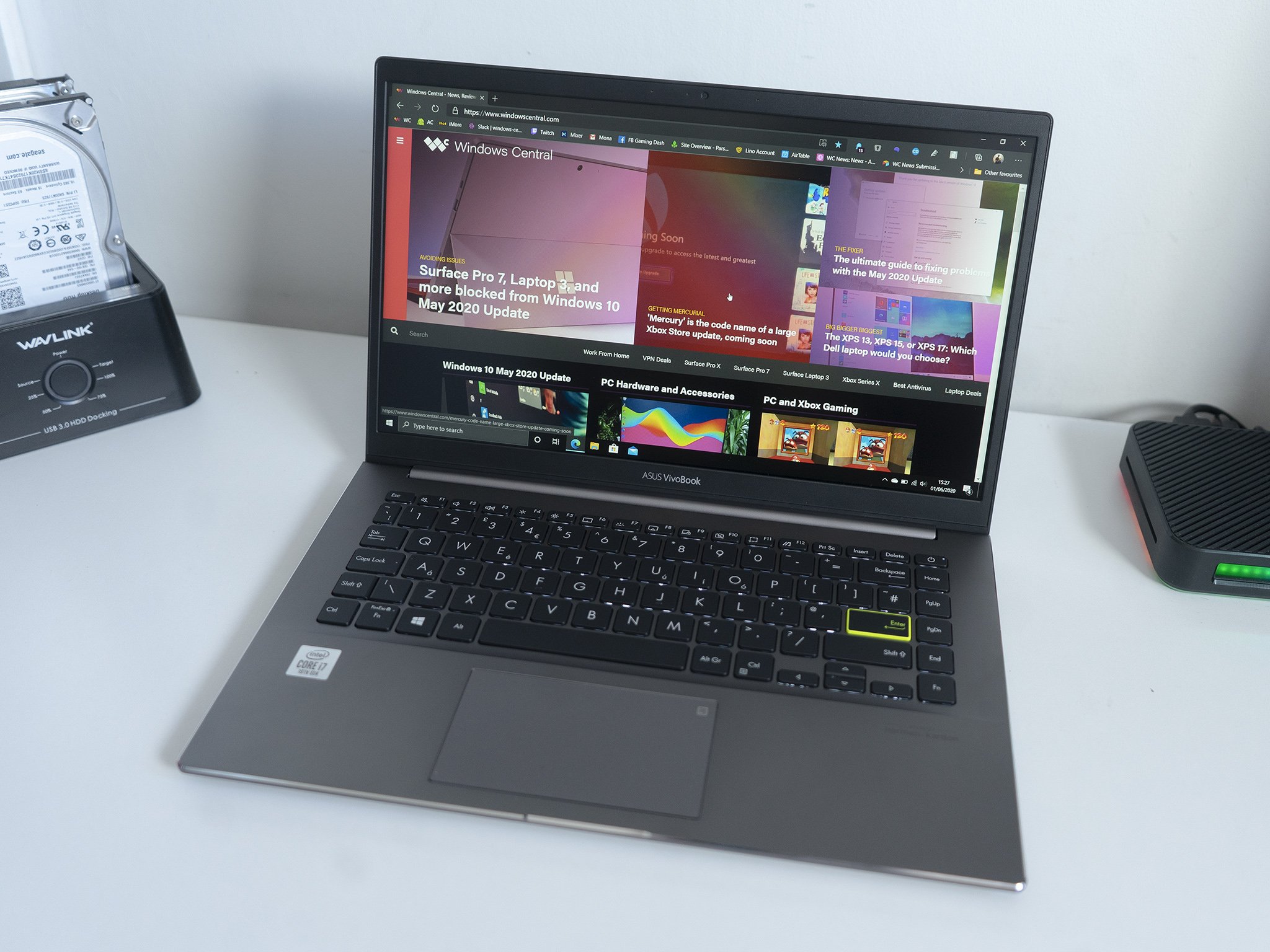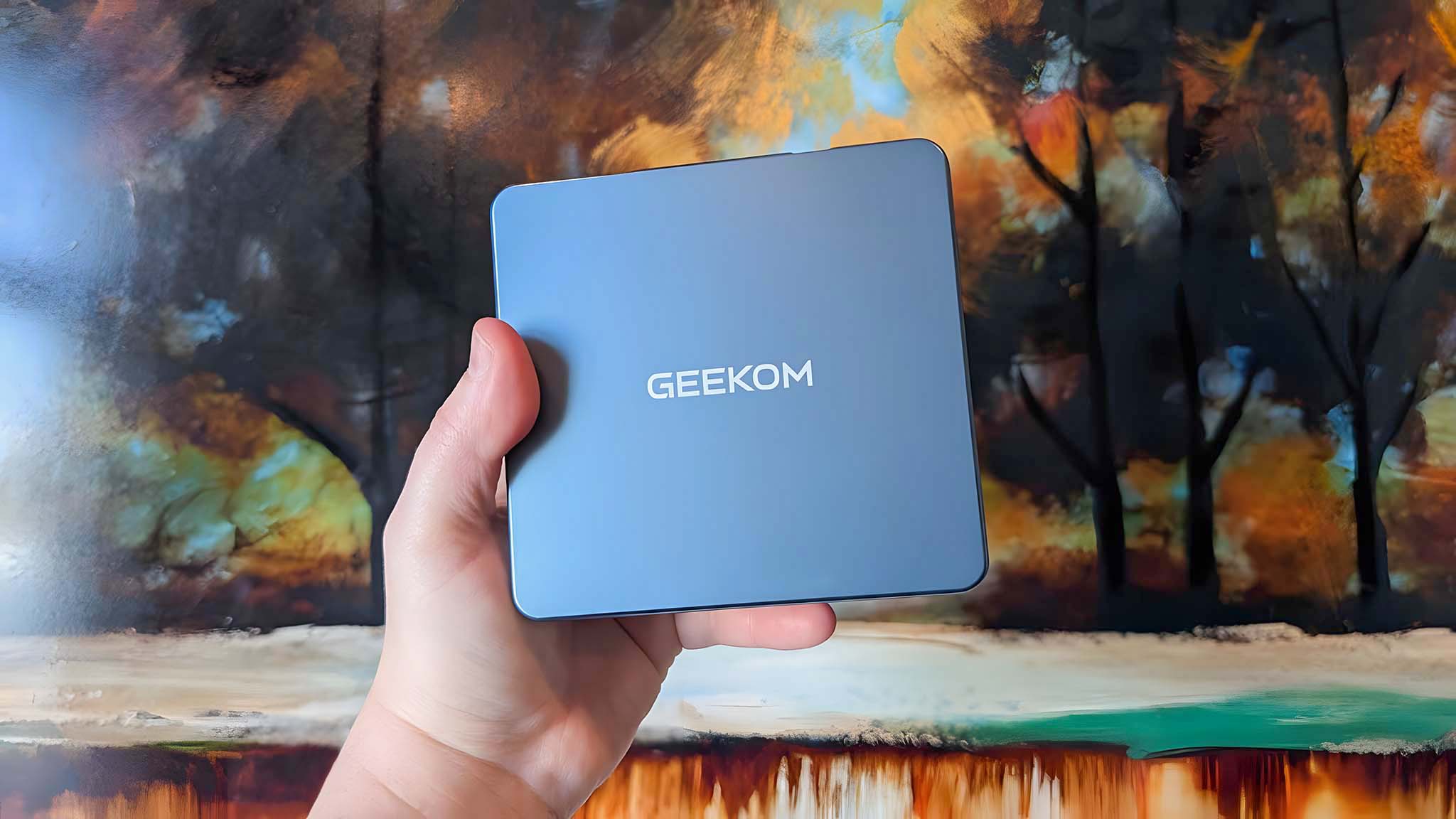It's an exciting time to be shopping for a mid-range laptop, with more good choice than ever before in the $500-$1,000 price bracket. Not only can you get something that looks like the most expensive, highest-end Ultrabooks, but in some cases, you can even get the same sort of specs you might once have been forced to pay over the odds for.
The latest ASUS VivoBook S14 is a perfect example of this. It oozes style, but it's not all just good looks on the outside. Under the hood are some seriously impressive specs all in a laptop you can buy for comfortably under $1,000.
It has its flaws, as most laptops do, but given the price point compared to what you're actually getting, this is a stunning laptop and one I'd happily use as my daily driver.
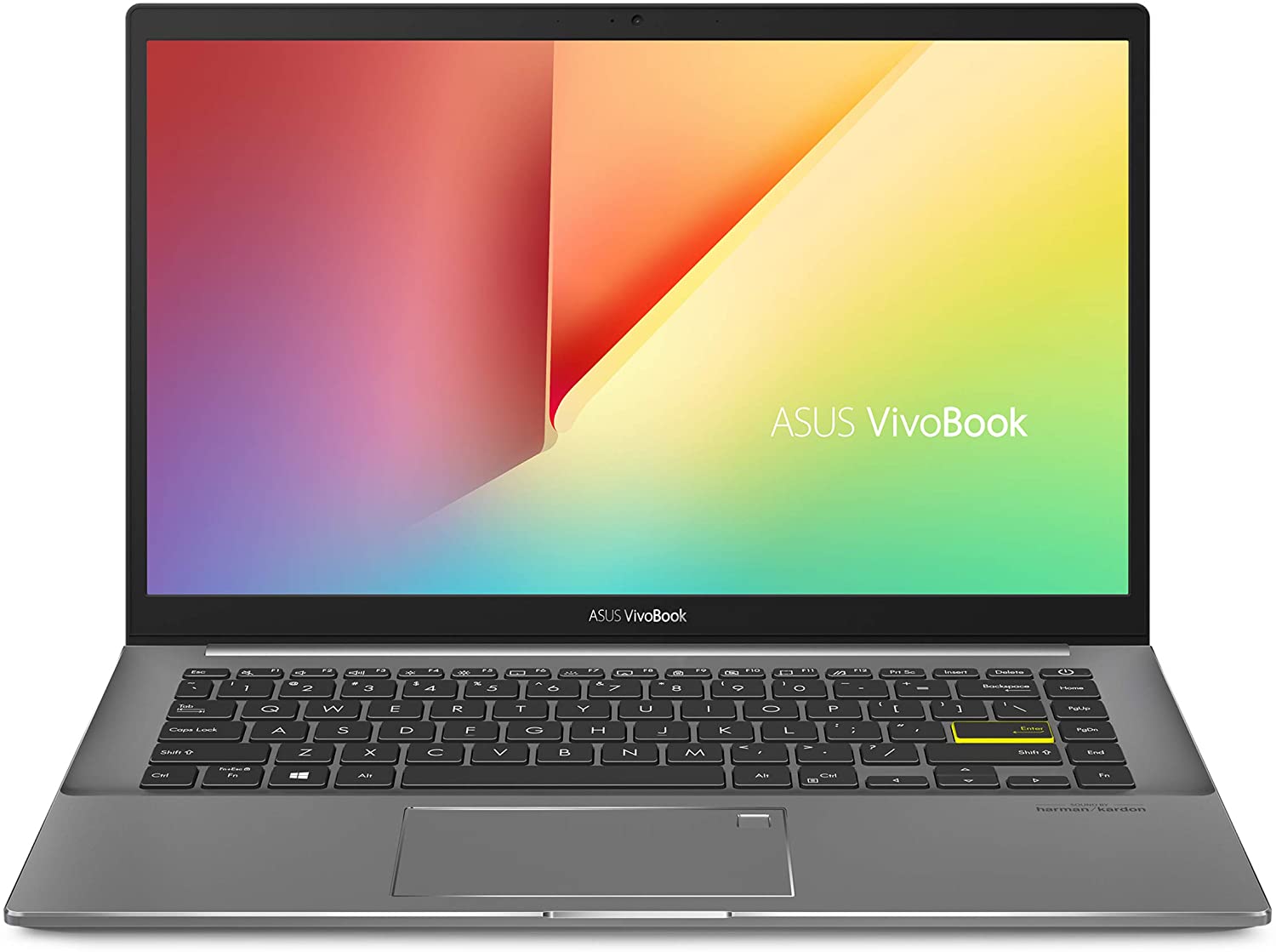
Bottom line: A premium Ultrabook in every way except the price, but one of the display options does let it down.
For
- Gorgeous design
- All-metal chassis
- Solid keyboard
- 10th Gen Intel CPUs
- Attractive price
Against
- Average SSD performance
- Disappointing display in some regions
- Doesn't charge over USB-C
What you'll like about the ASUS VivoBook S14
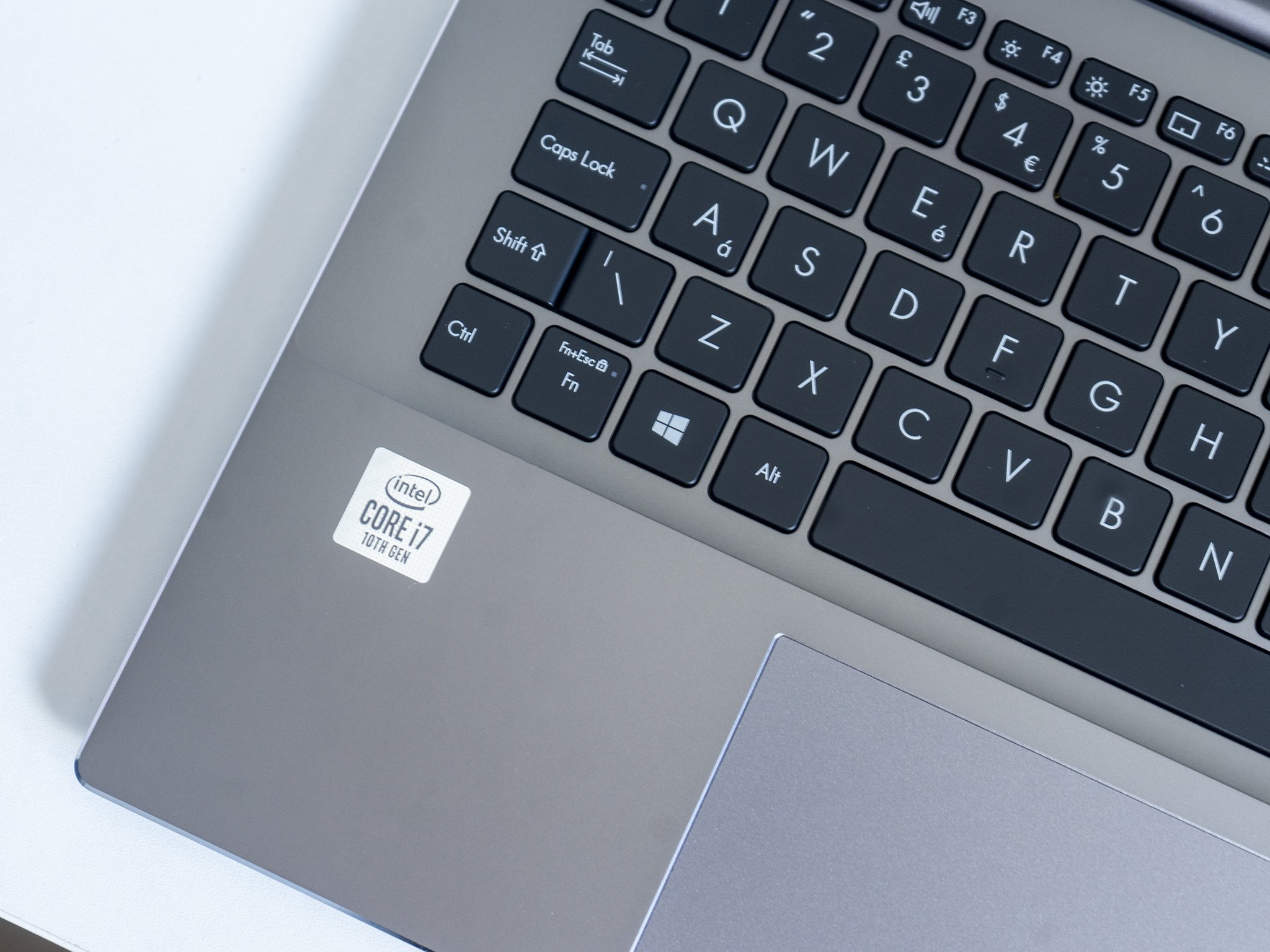
From the moment you open the box, the S14 impresses. The version I have is the gunmetal color, but there are several others, some more vibrant and fun like those with the green or pink lid. The gray is very sleek, though. I'm a big fan.
The chassis is all-metal, and while it isn't quite as small as a Dell XPS 13, it's still very compact for a 14-inch laptop. It's thin and light, and the compact nature is helped by the extremely slender bezels that flank the display.
Despite being small and slim, the S14 is still absolutely packed with useful ports. You've got USB-A, USB-C, microSD, and even a full-sized HDMI port. Need a number pad, too? No worries, on this version, simply tapping the right-hand corner of the trackpad brings up a full number pad, and it doesn't stop you using the trackpad, either.
On some models, you find a fingerprint sensor in this corner of the trackpad instead, which is also extremely useful.
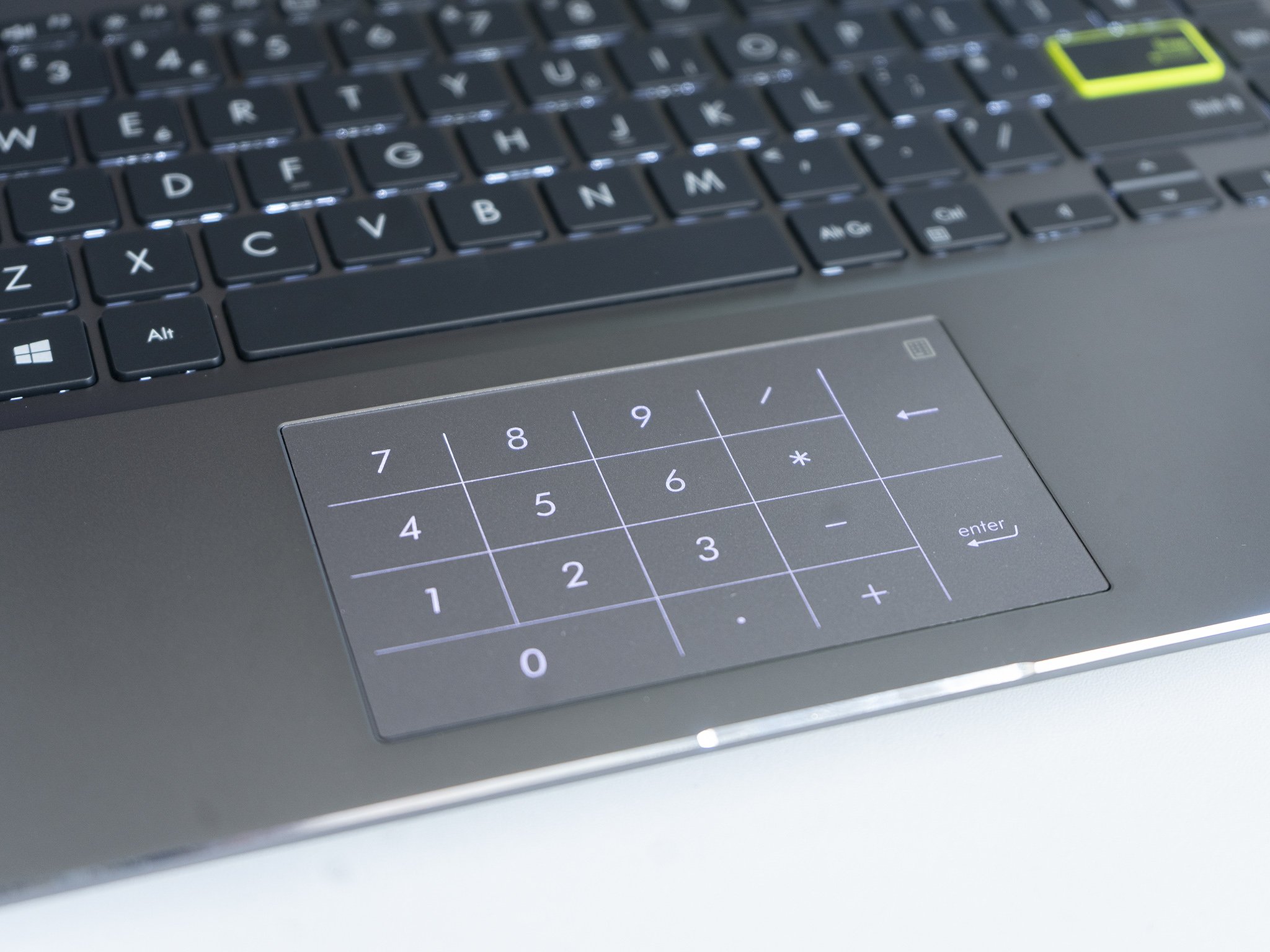
Up front, that 14-inch display has a 1080p resolution and no touch, which is fine, and it comes in two flavors depending on which region you're buying in. One of the panels has 100% sRGB color reproduction. One of them does not—more on that below. Sadly I don't have the better of the two, so I can't test how accurate the sRGB claim is.
What's inside is as impressive as what's outside, too. The review unit I have came with a 10th Gen Intel Core i7-10510U, a 512GB SSD, 8GB of DDR4 RAM, and Wi-Fi 6. The SSD also has Intel Optane memory, 32GB of it to be precise, and while the version I have only makes use of Intel's integrated UHD graphics, there is an option in some regions for the NVIDIA MX250 as well.
Performance is excellent, though, especially in this price range. CPU performance is right where you'd expect it to be when compared to some of Intel's new and older CPUs, and the only real fly in the ointment is falling short compared to similarly priced laptops powered by AMD's new Ryzen 4,000 series. Overall though, it's pleasing.
CPU
Geekbench 5.0 Benchmarks (Higher is better)
| Device | CPU | Single core | Multi core |
|---|---|---|---|
| ASUS VivoBook S14 | i7-10510U | 1,269 | 3,808 |
| Dell XPS 15 9500 | i7-10875H | 1,318 | 7,621 |
| Dell XPS 15 7590 | i9-9980HK | 1,176 | 7,624 |
| Lenovo ThinkPad X1 Extreme (Gen 2) | i7-9850H | 1,160 | 4,168 |
| ASUS ROG ZEPHYRUS G14 | Ryzen 4900HS | 1,221 | 7,982 |
| Surface Book 3 15 | i7-1065G7 | 1,298 | 4,511 |
| Surface Book 2 15 | i7-8650U | 1,130 | 3,602 |
| Dell XPS 13 9300 | i7-1065G7 | 1,284 | 4,848 |
| Dell XPS 13 2-in-1 7390 | i7-1065G7 | 1,209 | 3,571 |
| Dell Inspiron 13 7390 2-in-1 | i7-8565U | 1,111 | 2,965 |
| Dell Precision 3541 | i7-9750H | 1,117 | 4,720 |
| Lenovo IdeaPad Flex 5 14 | Ryzen 5 4500U | 1,087 | 4,570 |
| Surface Laptop 3 15 | Ryzen 5 3580U | 769 | 2,720 |
SSD
CrystalDiskMark (Higher is better)
| Device | Read | Write |
|---|---|---|
| ASUS VivoBook S14 | 1,428 MB/s | 356 MB/s |
| Dell XPS 15 9500 | 3,420 MB/s | 2,856 MB/s |
| Dell XPS 15 7590 | 3,000 MB/s | 2,796 MB/s |
| Lenovo ThinkPad X1 Extreme (Gen 2) | 3,416 MB/s | 3,016 MB/s |
| Dell XPS 13 2-in-1 7390 | 2,400 MB/s | 1,228 MB/s |
| Dell Inspiron 13 7390 2-in-1 | 1,440.3 MB/s | 359.2 MB/s |
| Dell Precision 3541 | 3,468.8 MB/s | 2,220.4 MB/s |
| Huawei MateBook 14 | 3,470 MB/s | 1,920 MB/s |
| Huawei MateBook X Pro (new) | 3,416 MB/s | 2,779 MB/s |
| Huawei MateBook 13 | 3,436 MB/s | 2,553 MB/s |
| HP Spectre x360 13t | 3,085 MB/s | 1,182 MB/s |
| LG gram 14 2-in-1 | 558.1 MB/s | 523.1 MB/s |
| Dell Latitude 7400 2-in-1 | 3,110 MB/s | 2,825 MB/s |
.
Battery performance is pretty good, too. The VivoBook S14 comes with a 3-cell 50Wh battery, and in real-world use, it's been good enough for between 7-8 hours off the charger. It's disappointing that you can't recharge over USB-C, so you'll still have to carry a dedicated laptop charger, but at least if you leave it at home, you'll be able to get through a day. The S14 also boasts fast charge, getting up to 60% in just 49 minutes.
One other thing worth highlighting is the keyboard. ASUS keyboards are generally outstanding, and its no exception on the S14. Weirdly, ASUS decided to outline the enter key with a Day-Glo yellow, but to actually type on and use the keyboard is excellent with good key travel and a strong backlight.
What you'll dislike about the ASUS VivoBook S14
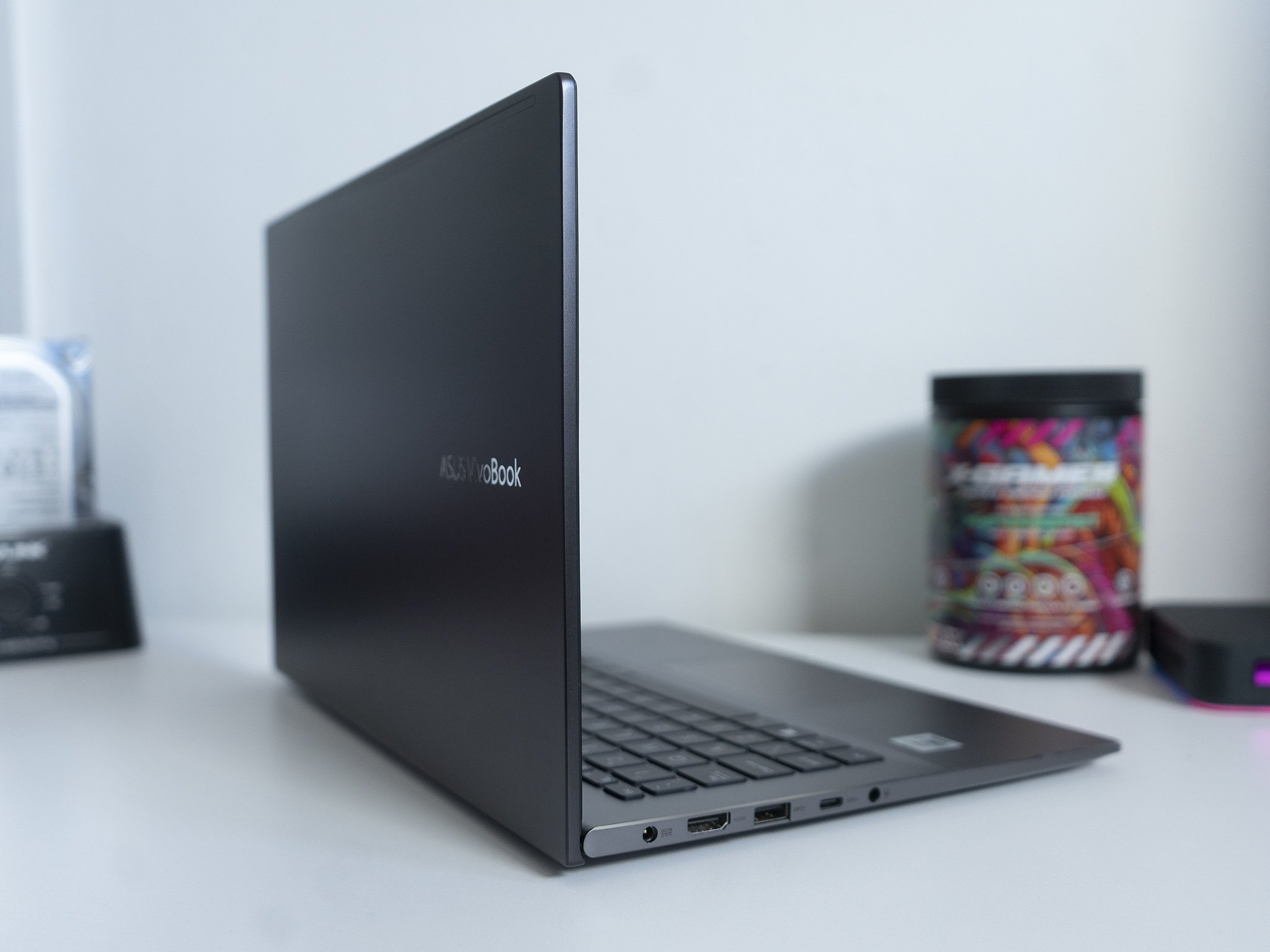
Earlier I mentioned the display and how there are two variants. One sounds very good, the other, well, it's pretty average. And that's the one I have. Where the better claims a 100% sRGB figure, the alternative is very far away from this. Run through my SpyderX colorimeter, it reported just 64% of RGB, and the calibration was undoubtedly on the cool side.
For most people, the display will still be excellent. It doesn't look bad to the eye, and calibrating it makes a difference. But even at this price, you'd be entirely within your rights to expect a little more, and for creatives who want to edit photos or videos, for example, this is offputting.
This display could also do with being a little brighter, too. It's matte, at least, but when I sat at my kitchen table on a sunny day, I was still struggling to read text at times. I don't make a habit of working outdoors, so I could certainly live with it, but I do wish that all versions of the S14 just came with the better display, even if it meant adding a little to the price. It would be well worth it.
The SSD performance is also pretty average. In regular use, you won't notice any issues; indeed, the read speed from the Optane-infused SSD is quite quick. It's far from the fastest you'll find in a laptop, but for something in this price range, it's not too bad. The read speeds are reporting fairly low, which could be down to a combination of the benchmark software and Optane, but large file transfers do take noticeably longer than on some other laptops I've got lying around.
Should you buy the ASUS VivoBook S14?
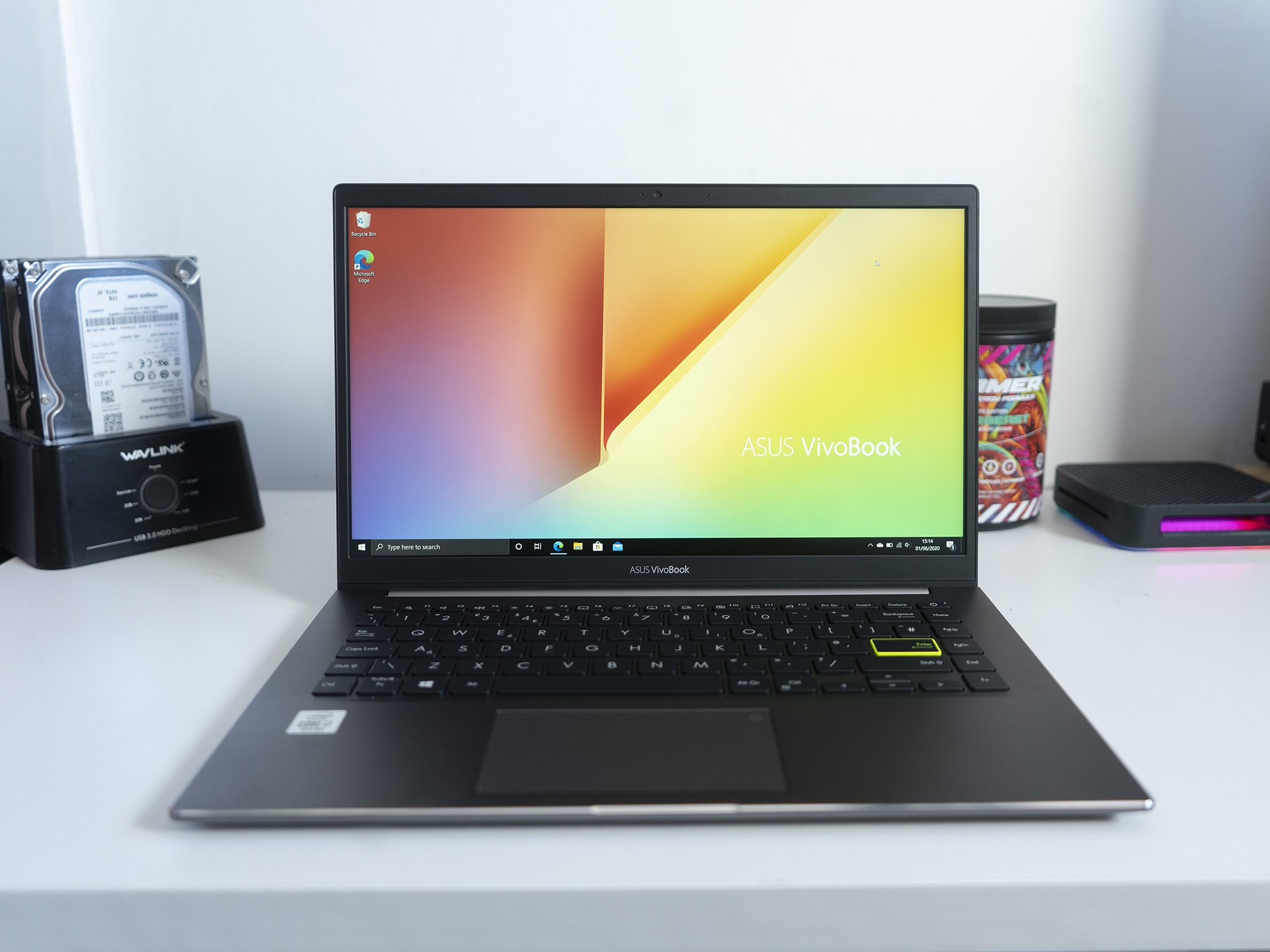
If you're shopping in the $500 - $1,000 space, I would certainly put the VivoBook S14 on your shortlist. Exactly which combination of specs you can get will depend on where in the world you are, but if you can get a better-quality display, in particular, it's excellent value.
Whether you get the Core i5 or Core i7 version, you're getting a quad-core CPU now with hyperthreading, and the option of NVIDIA graphics being there on selected models is a nice bonus.
The VivoBook S14 certainly isn't perfect, but it's great to look at, a pleasure to use, well priced, and very well equipped.
It's clear where it isn't entirely on par with the likes of the XPS 13 and the Surface Laptop 3, but it also costs significantly less than both of those. It's exciting to see a mid-range laptop as good as this.

A mid-ranger you can easily mistake for something much more expensive
Aside from the lackluster display some regions get, the ASUS VivoBook S14 is a superb Ultrabook that costs a bundle less than some of the best-known names in the space while offering comparable hardware and quality.

Richard Devine is a Managing Editor at Windows Central with over a decade of experience. A former Project Manager and long-term tech addict, he joined Mobile Nations in 2011 and has been found on Android Central and iMore as well as Windows Central. Currently, you'll find him steering the site's coverage of all manner of PC hardware and reviews. Find him on Mastodon at mstdn.social/@richdevine
